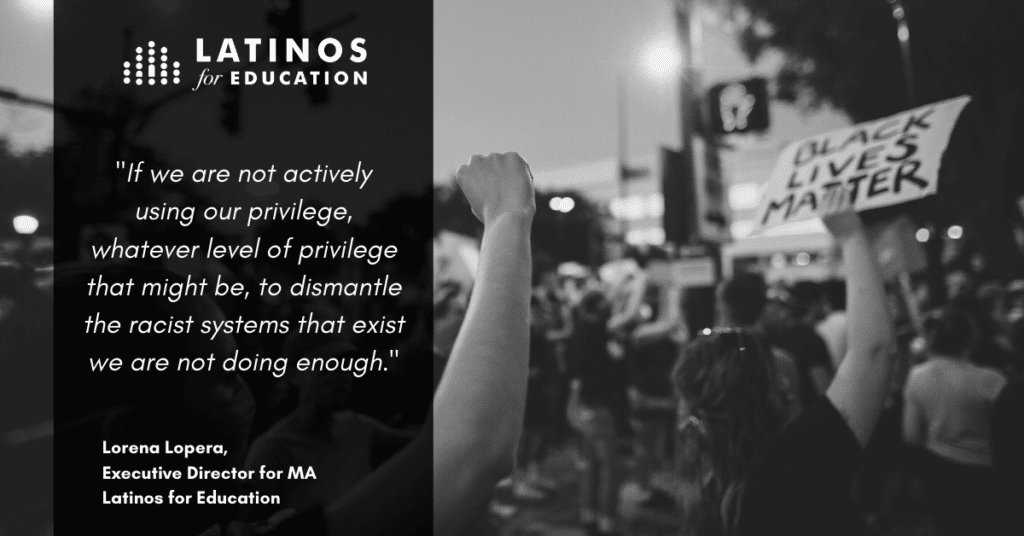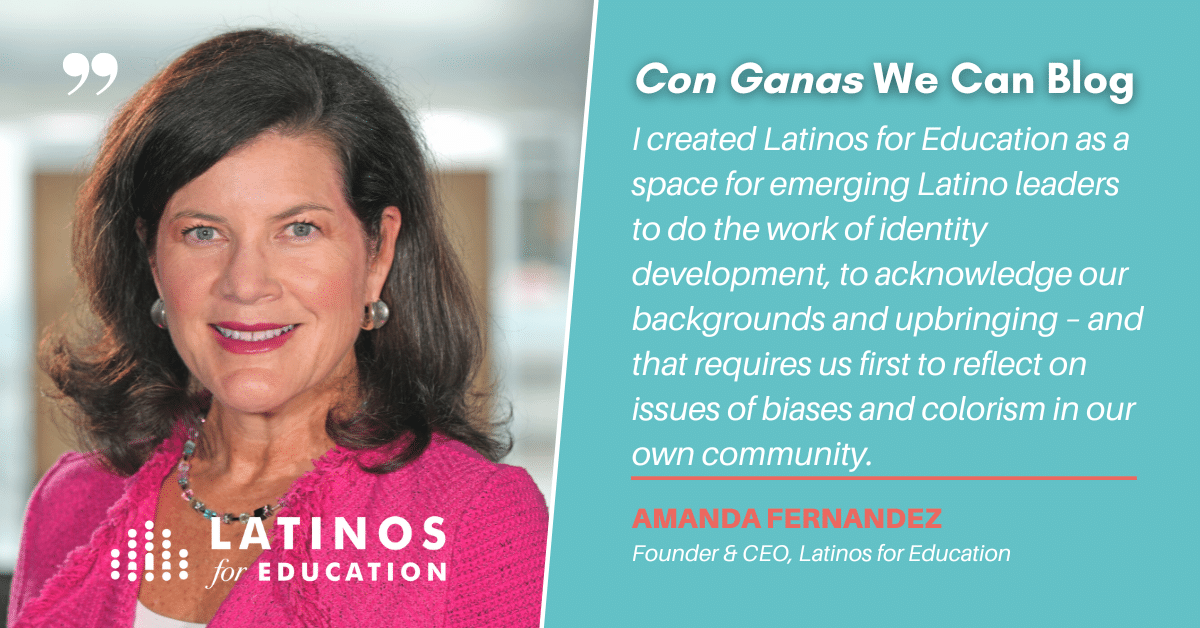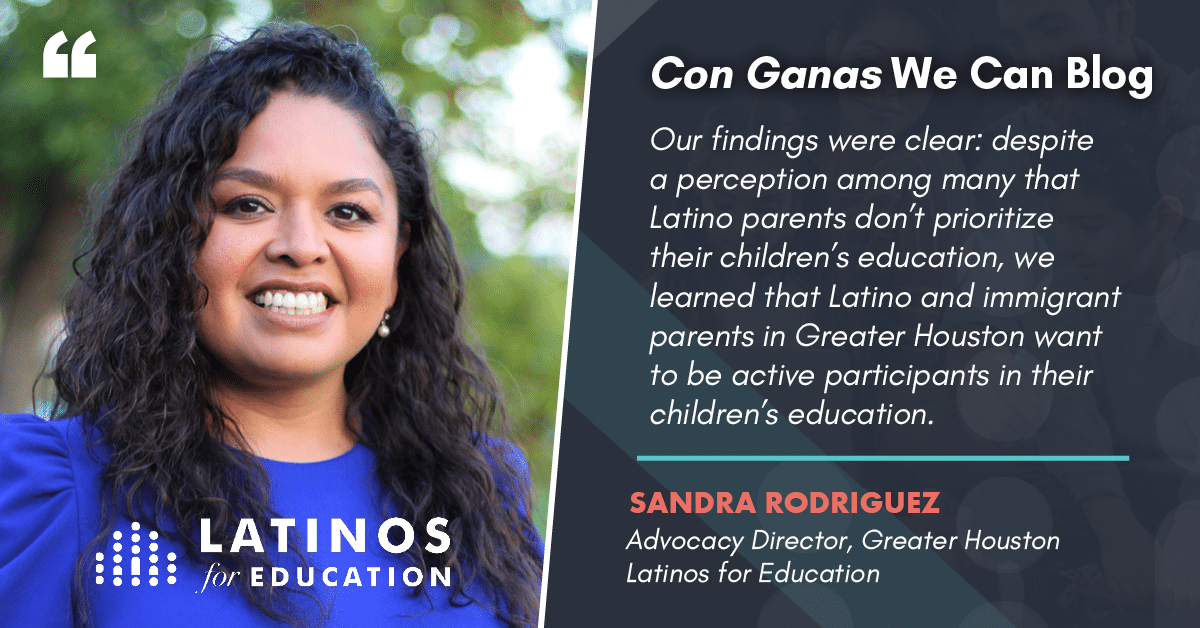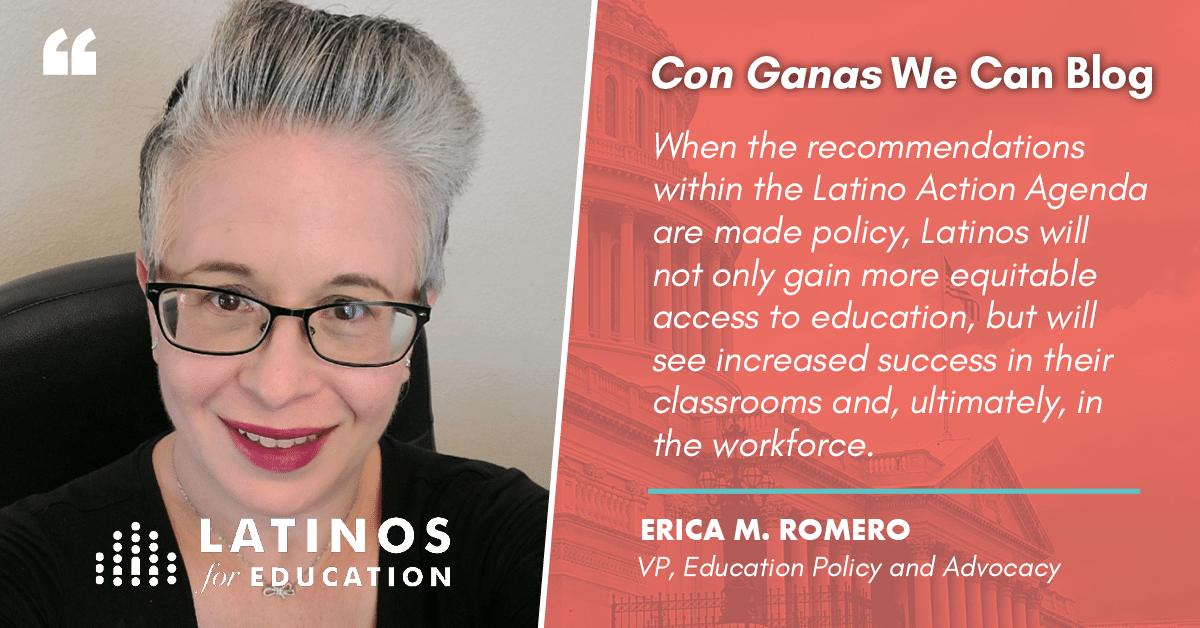What I’ve learned as a White-Presenting Latina and a Call to Non-Black Latinx to Engage in the Fight for Racial Equity
By: Lorena Lopera

I am a Latina — specifically a white-presenting Latina. While I have experienced racism and discrimination, I have never feared for my life because of the way I look. I pass. It’s as simple as that. I have had countless people tell me that I don’t look Latina. They may judge me in some ways, asking why my skin is so white, or why I don’t have an accent when I speak English, but I am never treated as a physical threat.
I have never been thrown on the ground and handcuffed because I “fit a description.” My brothers – who are visibly non-white – have. I have never felt a police officer was going to hurt me or not believe me if I approach them. My parents – also visibly non-white – have. Yet, even though the people closest to me have faced this, I don’t fear for my life during interactions with police. I don’t fear for the life of my children who are also white-presenting Latinos. The issue of systemic racism and police brutality is not an issue I will ever have to warn them about for their own safety.
I do, however, worry about the many black and Afro-Latinx people who live in fear every day. I’ve witnessed firsthand how a seemingly inocuos encounter can quickly turn tense and traumatic. I recall a scavenger hunt with my coworkers a few years back when my team jaywalked across the street to save a few seconds and get ahead of the competition. One of my teammates a- Black woman – was far enough away from our group that she looked like she was alone. As she ran across the street, a police officer immediately yelled at her. My colleague’s face showed a terror I have personally never experienced. The rest of our white-presenting team was able to step in and deescalate the situation, but I wonder what would have happened had she not been with us.
Every day, and for centuries, across this country, encounters such as this one devolve into tragic stories that the nation is just now awakening to. Yet, I’m concerned that many of us white or white-presenting people still don’t understand the full extent of what Black and Afro-Latinx people have to endure because our education is whitewashed and the media only occasionally turns its attention to racial inequality. Even while this country addresses the issues of police brutality and systemic racism, I fear that for many it is easier to continue to turn a blind eye.
It’s reflected in the return to normalcy for many after weeks of protests. It’s reflected in the narratives that blame violence or “riots” as the reason that messages aren’t being heard by some. History has shown us that even when protests are peaceful, lives continue to be discarded as if they don’t matter. Even when we have seen “progress” from slavery to the Jim Crow era, to redlining, to the school to prison pipeline, new systems are established to continue to hold down those who are not white. Even when our highest court ruled that our education system could no longer be separate but equal, one can look at our school houses today and ask if anything has really changed.
Just as I call on my white allies to join in the struggle for systemic justice for BIPOC children and families, I am asking all non-Black Latinos to engage in the struggle for justice for our Black and Afro-Latinx brothers and sisters. Our humanity is interconnected and our success as a whole depends on each other’s individual success. This process starts with self reflection and understanding of one’s own biases. It is not enough to not be racist; we must be anti-racist and there is a big distinction between the two. If we are not actively using our privilege, whatever level of privilege that might be, to dismantle the racist systems that exist we are not doing enough. Here are some things we can do:
- Push your local police department to adopt 8 can’t wait principles
- Actively seek out resources to further one’s own understanding and biases, we all have them. This is a good place to start.
- Talk about colorism within our own families. Call out racist language such as negrito, prieto etc. and examine the colonizer mentalities that we have exposure to every day.
- Talk to your children or the children in your life about race and the beauty that each of us represents. Actively look for books, movies, toys that depict black characters as main characters.
- If you are a white leader, learn that leading also means stepping down or aside so that others with a lived experience different than your own can lead. Also recognize that lived experience can be equally or more valuable than formal education.
Every single day I worry about my non-white friends and family members, many of whom are Black. I worry that my Black nephews will not grow up with the innocence and inherent protection my children have access to. I worry that I will have to one day comfort their parents or that these boys may grow up without their father. But I am also encouraged by the young, diverse leadership demanding change. We must all join them in these demands.
About Lorena Lopera
Lorena Lopera is Executive Director, Massachusetts at Latinos for Education. Previously, she served as Director of Development at BES, where she led fundraising efforts nationwide. Prior to this, Lorena worked with various organizations including City Year, The Posse Foundation, Epiphany School and Sociedad Latina, focusing her work on education equity. She immigrated from Colombia as a child and knows how much hard work, resilience, and support goes into finding the right opportunities for success. She holds a B.A. in Hispanic Studies from Boston College. Lorena is a proud BPS Parent and current Co-Chair of the Hurley K-8 School Site Council.





